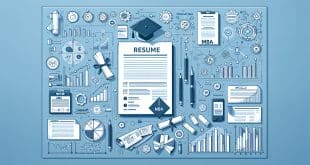Harvesting Opportunities: Elevating Your Agro Professional Resume for Success
In the dynamic world of agriculture, where innovation meets tradition and sustainability guides progress, standing out as an agro professional requires a strategic approach. Whether you’re sowing the seeds of your career or looking to cultivate new opportunities, your resume is a fundamental tool that showcases your expertise, achievements, and potential. In this comprehensive guide, we’ll explore how agro professionals can transform their resumes from good to great, ensuring they capture the attention of industry leaders and land the positions they desire.
Understanding the Landscape: The Agro Professional’s Role
The agriculture sector is vast and varied, encompassing roles from agronomists to crop scientists, food safety experts to agricultural economists. It’s a field rooted in practicality yet heavily influenced by modern technology and global market trends. Therefore, an agro professional’s resume must reflect both technical proficiency and an understanding of these broader industry dynamics.
Planting the Seeds: Building a Strong Foundation
Before diving into specifics, ensure your resume has a strong foundational structure:
- Contact Information: Include your full name, professional email address, phone number, and LinkedIn profile if applicable.
- Professional Summary: Craft a concise paragraph that summarizes your experience, key skills, and career objectives. Tailor it to each job application to align with the specific role you’re applying for.
Curating Your Experience: The Heart of Your Resume
Your work history is the central part of your resume. Here’s how to make it resonate:
- Relevant Experience: List your most recent positions first, highlighting roles relevant to the agro industry.
- Achievements over Responsibilities: Focus on what you accomplished in each role rather than listing duties. Use quantifiable metrics to demonstrate impact, such as Increased crop yield by 20% through implementing precision agriculture techniques.
- Technical Skills: Clearly state industry-specific skills such as GIS mapping, pest management, or crop modeling. This highlights your technical prowess.
Education and Certifications: Enhancing Your Credentials
In an industry that values both knowledge and practical skills, your educational background can set you apart:
- Degrees: Include your degrees, institutions, and graduation dates. If you’re a recent graduate, you might also list relevant coursework or projects.
- Certifications: Certifications such as Certified Crop Advisor (CCA) or those from the Sustainable Agriculture Research and Education (SARE) program can strengthen your resume.
Nurturing Professional Growth: Continuous Learning and Networking
Demonstrating a commitment to ongoing learning and industry engagement can significantly enhance your resume:
- Professional Development: List workshops, conferences, or online courses that you’ve attended to stay current with industry trends.
- Memberships: Mention affiliations with professional organizations such as the American Society of Agronomy (ASA) or the International Federation of Agricultural Journalists (IFAJ).
Tailoring Your Resume: The Importance of Customization
No two job applications are the same, and neither should your resumes be. Customize your resume for each opportunity by:
- Keyword Optimization: Use keywords from the job description to pass applicant tracking systems and demonstrate alignment with the role.
- Company Research: Understand the employer’s mission and values, and reflect this understanding in your resume and cover letter.
The Final Harvest: Polishing Your Presentation
A great resume is not just about content but also about presentation:
- Formatting: Use a clean, professional layout. Consistency in font types and sizes helps ensure readability.
- Proofreading: Double-check for grammar and spelling errors. Consider having a peer review your resume for feedback.
In conclusion, moving from good to great in your resume as an agro professional is about more than just listing your experienceit’s about strategically presenting your skills, achievements, and aspirations. In a continuously evolving field, your ability to communicate your value through a well-crafted resume can open doors to rewarding opportunities. Invest time in refining your resume, and let it be a testament to your potential and dedication in the world of agriculture.
 Grants Club Community
Grants Club Community







